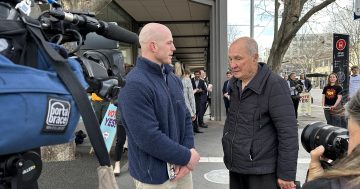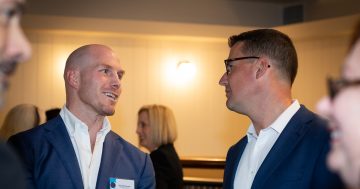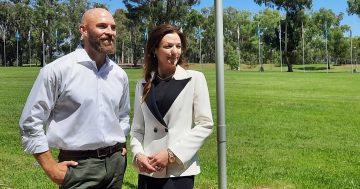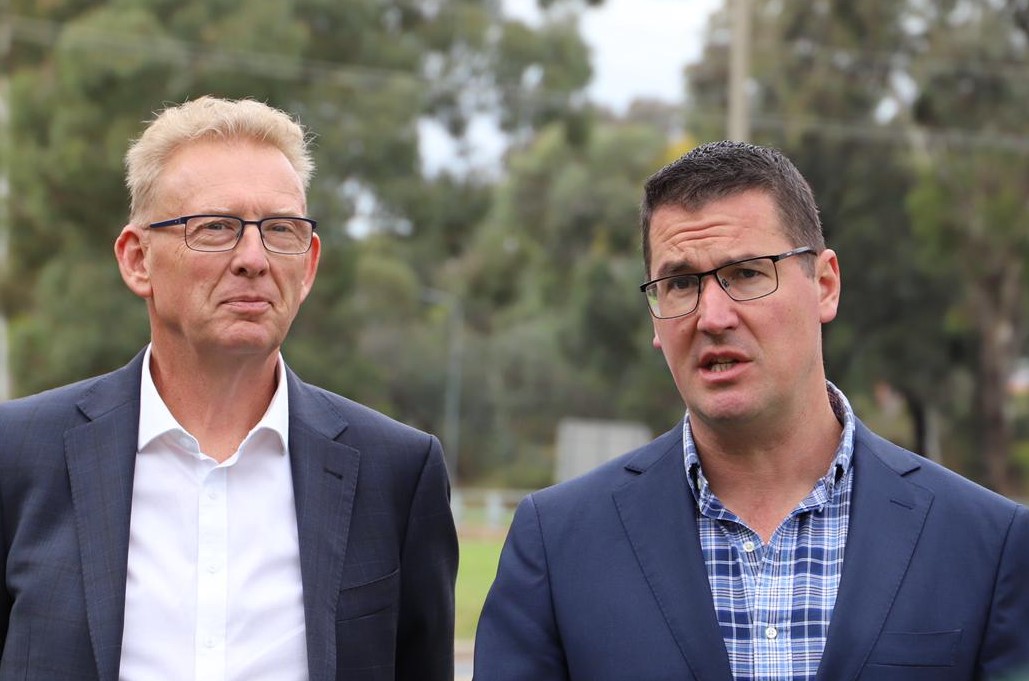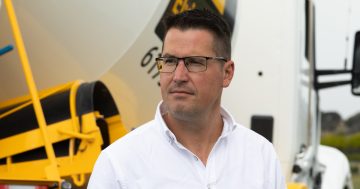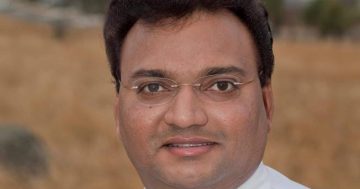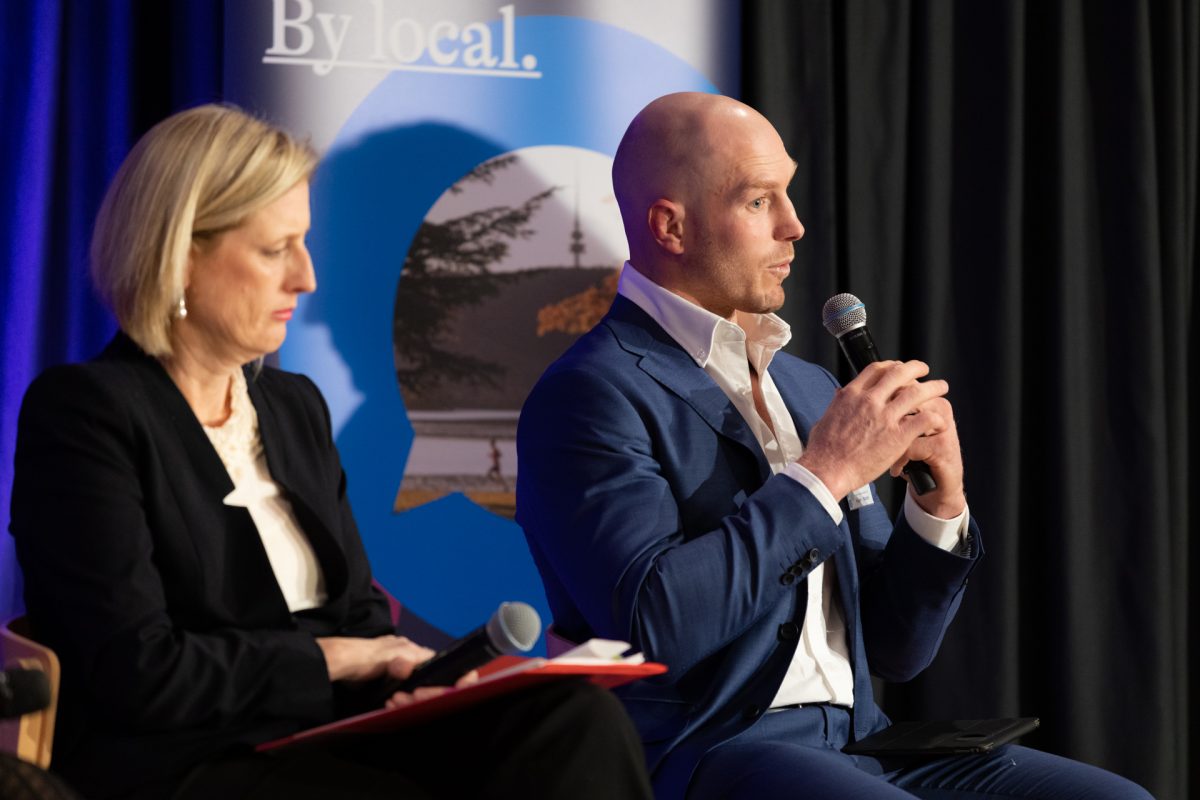
Senator David Pocock talked the talk to defeat Zed Seselja in May. But the hard work has started. Photo: Michelle Kroll.
The elation of election night has faded, the hard work has begun and Senator David Pocock is looking to the future. That also means recognising some hard cold truths about the present.
The ACT’s newest political representative is the first in Region‘s series of video interviews with the leaders shaping Canberra’s future. We’re asking about their vision for Canberra 2030 and what it will take to get there.
When Senator Pocock faces the ACT’s voters again at the next Federal election, he will need to produce some receipts. There will be expectations he’ll deliver on both infrastructure and funding by leveraging his vote for better Territory outcomes.
The Albanese government is clear about how tight the October budget will be, but the ACT’s newest representative also holds the crucial 39th vote in the Senate. This, along with Greens’ support, could deliver the legacy reforms Labor hopes to establish in its first term.
So what will he do with this power, how will he differ from the Government and the Greens – and is he here for the long run?
In July, it was revealed the ACT’s population had been undercounted by approximately 20,000, an outcome that Chief Minister Andrew Barr said had potentially cost Canberrans significantly with regard to GST revenue and federal funding agreements struck on the basis of population.
Senator Pocock has met with new Minister for Territories Kristy McBain several times and will meet with Treasurer Jim Chalmers shortly. He’ll make budget submissions and says his requests will be driven by public consultation.
“We’ve missed out on around $150 million in Commonwealth funding and that’s not insignificant when all of our services are just so stretched”, the senator says.
“A bunch of the things I’ve been pushing are good for small businesses and businesses more generally.
“We’ve set up a bunch of working policy groups so people can actually get involved and put forward their views. We’ll use that to really inform how I’m approaching different issues and, ultimately, it’ll probably shape how I vote on behalf of the ACT.”
Clearing the Territory’s $100 million housing debt would be a significant start. However, it’s not likely to completely satisfy those looking for concrete outcomes in the form of education, health care and major projects. Neither will an integrity commission alone.
“My approach is I’m in there to be constructive and to contribute, but also to push for the ACT and to fight really hard for us and ensure that we are getting our fair share”, he says.
“It’s been really frustrating over the last however many years with the constant focus on the Canberra bubble, which discounts everyone who lives here and loves Canberra.
“I think we’ve got to say yes, we’re the nation’s capital and we’ve got a bunch of fly-in fly-out politicians, but outside of that we’re sitting here in our own right.”
Senator Pocock campaigned heavily on integrity. Voters were asked to draw a distinction between him and Senator Zed Seselja, who was widely perceived to vote according to his own beliefs rather than the electorate’s wishes.
However, the new senator has always held strong (and very public) views on the environment and sustainability. The Liberals questioned his independence during the election campaign, calling him an “extreme green” in disguise.
While the tactical value of those claims was debatable in an election campaign where many local voters were concerned about climate change, the insinuation is more problematic when he’s voting on legislation.
If Senator Pocock is a rubber stamp to the Green’s agenda in the Senate, he risks his re-election chances among suburban Canberrans who may have moved on from their irritation with Zed Seselja.
He’s insistent that David Pocock and the Greens are not a pigeon pair.
“My platform is very different to them and across a number of areas. I’m sure that’ll become even more evident as time goes on,” he says.
“My commitment [to Canberra voters] is on each piece of legislation, to actually look at it and say, how will this affect people in the ACT? How does it square with the kind of future that people want for Australia?
“I can’t see myself voting for stuff that I fundamentally disagree with. It is about actually using that power to get good outcomes and pushing really hard”.
Judging David Pocock on his achievements over the next three years (and perhaps the next 10) will be a very different matter from embodying electoral hopes and dreams. It will take more than promises to deliver on those expectations for Canberra 2030.












